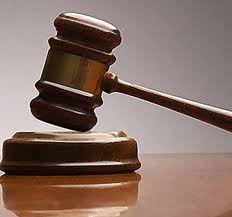
“With the kind of peaceful election that we experienced on the two polling days, 7 and 8 December, are we setting the clock back by a narrow interpretation of electoral laws?
A strict interpretation would curtail and erode the gains we have made so far.”
This was contained in the 77-page judgement of Justice Sophia O. Adinyira, one of the judges who dismissed all the claims brought by the petitioners in the just-concluded landmark Presidential Election Petition.
In Justice Adinyira’s opinion, interpreting the law strictly as a judge would erode the democratic gains that Ghana has made so far.
According to the judgement, a narrow interpretation of electoral laws and many other factors accounted for why Justice Adinyira, together with other Supreme Court judges, dismissed the petition that challenged the validity of the Electoral Commission’s (EC) declaration of John Dramani Mahama as President.
She said: “What Ghanaians need to do is to shun and shame the growing violence that has come about as a result of irresponsible, impudent, disrespectful and chauvinistic persons, whose unguarded utterances, and machinations at times bordering on treason are causing disunity in this our dear country all in the name of politics.”
She said overturning an election “is a very serious matter,” adding that “in order to uphold the grounds for annulling votes that the petitioners are requesting to be annulled for irregularities, malpractices and statutory breach, this court must be satisfied that the petitioners have successfully discharged the onus they bore right from the onset.”
Justice Adinyira said that while it was conceivable that the law of elections could be infringed, especially through incompetence, malpractices or fraud attributable to the responsible agency, it rested on the person who alleged, to produce the necessary evidence in the first place and added, “I cannot be so satisfied that the petitioners discharged the burden of proof.”
“The petitioners relied on pink sheets and no other evidence, and in view of the fact that the petitioners kept changing categorization, number of exhibits they are relying on, admission of mislabelling and double counting, I cannot be
confident that these slips did not affect their case.”
Justice Adiyinra’s position on the number of exhibits was shocking because in open court she said she was satisfied with the exhibits filed by the petitioners when the respondents refused to disclose the number of pink sheets at their disposal.
Burden of Proof
According to Justice Adinyira, the Petitioners bore the burden of proof to establish that there were violations, omissions, malpractices and irregularities in the conduct of the presidential election, and that the said violations, omissions, malpractices and irregularities, if any, affected the results of the election.
“It is after the petitioners have established the foregoing that the burden shifts to the respondents to establish that the results were not affected. The threshold of proof should, in principle, be above the balance of probability.” Documentary Evidence
The Petitioners by their initial petition alleged that the stated irregularities occurred at 4,709 polling stations. It was later amended to indicate that the irregularities occurred at 11,916 polling stations.
The Petitioners further reduced the number to 11842, 11138, 11115, 10119 and finally 10081 polling stations.
She said that the respondents throughout the trial disputed the exact number of pink sheets (11,842, 11,138, 11,115, 10,119 and finally 10, 081 polling stations) the petitioners alleged and insisted that they were served with a lower number and also cited instances of duplication in the exhibits they received. She said the disagreement compelled the court to appoint an independent referee to count the pink sheets involved.
Voters Register According to Justice Adinyira, the petitioners cited variations in the register used at the polling stations and double registration as factors of illegality in the conduct of the Presidential election.
She said the EC though conceded that there were instances of different figures in the register as well as instances of double registration, the commission had been able to explain itself in court that the irregularities did not affect the outcome of the election.
She also said that those persons whose data appeared in the register could only vote once due to the use of biometric verification as explained by the EC.
Interestingly, Justice Adinyira ruled against voting without biometric verification, making it difficult to detect double voting if indeed it occurred.
She said she was dismissing the petitioners’ claims because as a demonstration of transparency in the electoral process leading to the elections, an Interparty Advisory Committee (IPAC) was established with the purpose of achieving consensus in managing the elections which was to be organized under the auspices of the Electoral Commission and the EC had a series of meetings with IPAC at various stages in the electoral process.